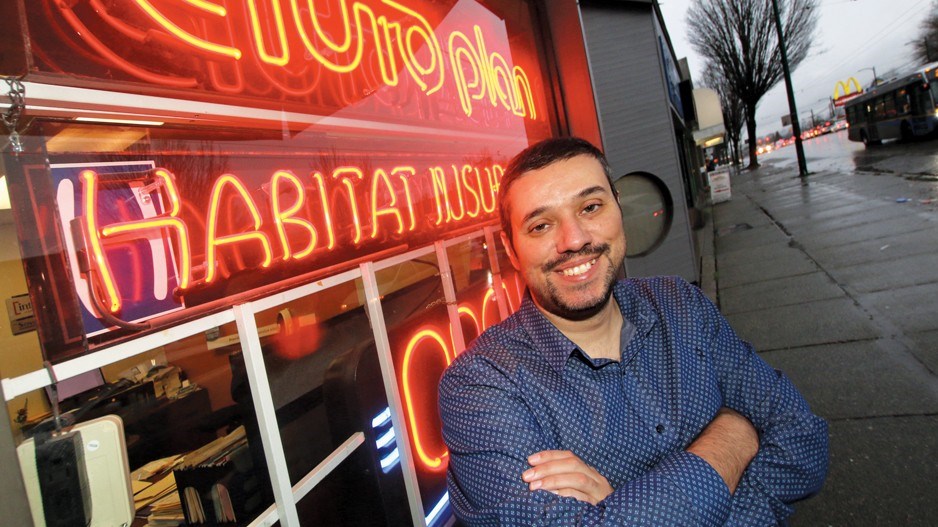Despite obstacles and public advisories, many British Columbians will likely want to travel this winter.
Foremost among the challenges is the federal government warning to avoid all non-essential travel outside of Canada. Most general insurance policies therefore will not cover travellers if they get the virus, leaving most would-be vacationers with the choice of buying special insurance that covers COVID-19 emergency medical costs or risking huge financial costs by travelling uninsured.
Manulife, for example, has an interactive online tool that shows various rates depending on age, trip duration and destination. A plan that covers emergency COVID-19 health care for a 50-year-old man for two weeks abroad is around $125. COVID-19 coverage is usually a supplemental plan that is on top of basic coverage.
Despite the insurance sector’s quick pivot to create these plans, Habitat Insurance Agencies Ltd. office manager Richard Batista said there is little demand.
“I believe we’ve sold a couple [COVID-19 healthcare policies],” Batista said. “Most people are not travelling, or if they are travelling, they’re going back to countries where they are originally from and they might want to either risk it, or they have coverage back in that country.”
Travel within Canada is legal, and flights are operating, although some regions, such as Atlantic Canada, require all passengers to quarantine for 14 days on arrival. BC Ferries has released its upcoming schedule and, despite health officials' pleas for people to stay home, has significantly increased its number of sailings during the Christmas week. This week and next week appear to have eight sailings each day between Schwatz Bay (Victoria) and Tsawwassen. On December 23, there are 14 sailings on that route.
Some initiatives have been launched to help travellers navigate health restrictions. For instance a Vancouver Airport Authority-WestJet (TSX:WJA) pilot project provides rapid testing for some domestic passengers before departure.
Leisure travel by land to the U.S. is not possible because the border is closed for all but essential travel, at least until December 21, and all indications are that date will be extended.
About the only workaround for drivers is to have an import-export company move their vehicles across the border, following the process typically used to transport commercial goods. Prices usually range from hundreds of dollars for a car to around $1,000 for a recreational vehicle. Travellers could then fly to Bellingham International Airport from Boundary Bay airport, and pick up their vehicles to continue their journey.
“We’ve had a lot of volume lately,” Jayde McElroy, vice-president of marketing and sales at Bidbuy Importers, told BIV. “We’ve been really busy.”
Scheduled flights regularly depart to many international destinations, and leisure travellers are welcome.
Flight frequency is down at many airlines, such as Cathay Pacific (HKG:0293), which at its peak flew out of Vancouver International Airport to Hong Kong International Airport 17 times per week. In recent days, it has been flying the route three times per week.
Air France (EPA:AF) plans to restart Vancouver-Paris nonstop flights on December 14, using Vancouver as the stopover between Tahiti and France. Air-agreement restrictions mean that Vancouverites may not board Air France’s planes for non-stop flights to French Polynesia.
Mexico has been popular because it has no quarantine requirement and no requirement to provide a negative COVID-19 test.
Other popular hot spots have restrictions. Hawaii, for example, allows travellers to skip quarantine if they provide proof of a negative COVID-19 test within the previous 72 hours.
Air Canada (TSX:AC) has partnered with Shoppers Drug Mart to provide testing, starting on December 7, with flights to Hawaii from Vancouver scheduled to start December 17. That partnership also provides COVID-19 testing to travellers going to various Caribbean countries, which also require negative tests as a condition to enter without quarantine.
Travellers must quarantine for two weeks upon their return to Canada.
Health officials and politicians, meanwhile, continue to urge British Columbians to stay home.
“I cannot stop you, by an order, from getting into your car or going onto a plane, but I’m asking in the strongest of terms for us to stay put,” provincial health officer Bonnie Henry said earlier this month. •




